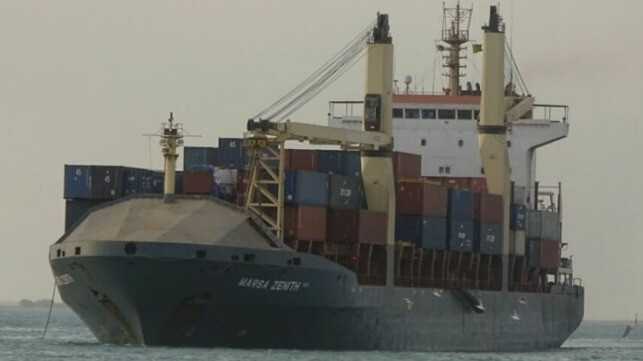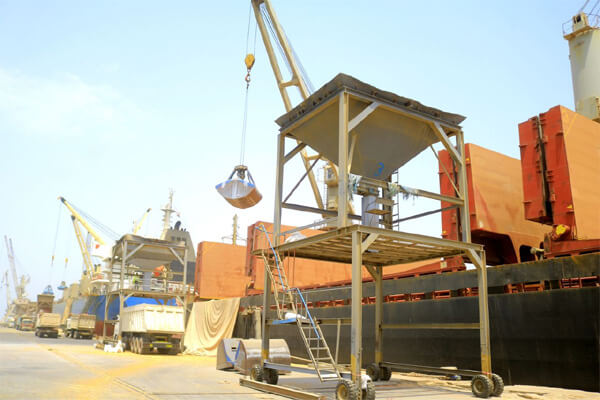Yemen's Hodeidah Port Resumes Operations After Israeli Strike

The Port of Hodeidah in western Yemen in areas controlled by the Houthi militants resumed operations late on Tuesday after the Israeli strikes. Reports indicated significant damage in parts of the port while Houthi officials insisted that the port is now operating normally.
The Houthis’ SABA news outlet highlighted the arrival of two ships at the port. Both vessels were coming from Djibouti according to the AIS signals. Records indicate the vessels Brother 1 and Marsa Zenith are each managed by companies based in Dubai.
The Marsa Zenith (16,824 dwt) is registered in Panama. Built in 2003, it is a small containership with a capacity of 1,200 TEU. The vessel was reflected recently operating in the Maersk network and shuttling between Jeddah, Saudi Arabia and Yemen. SABA reports the vessel arrived carrying 514 containers with various goods.
The other vessel, Brother 1 is a bulker registered in Tanzania. The 22,150 dwt vessel was reported to be carrying 22,800 tons of iron.
While the local administrators published photos of officials walking in the port and normal offloading operations, Agence France-Presse (AFP) captured pictures further down the quay showing the area covered with debris from the attack. Media reports are saying at least three of the port’s cranes were damaged and not operational. Five port cranes were reported to be operating. There are also unconfirmed reports of damage to the port’s warehouses.

Local administrators posted this undated photo asserting the port is functioning normally (Posted on X)
Hodeidah Port is a key element in getting relief and food supplies to the people are Yemen. Bellingcat and Lloyd’s List recently released an article saying that a Russian-flagged vessel was given UN permission to enter the port carrying grain from Crimea. The UN has attempted to impose an inspection restriction on all vessels entering the port. Israeli officials however contend the port is used by Iran to smuggle weapons to the Houthis.
The Israeli attack was targeted at a fuel storage facility in one part of the port and an adjacent power plant. Images after the attack showed a blazing inferno with reports at least six people were killed and more than 80 injured mostly with burns from the explosions and fires.
Unconfirmed reports in the media said there are still fires burning in sections of the port and smoke from the aftermath of the strikes. One report asserts there was an additional explosion in the port on Tuesday with fears the fire could still spread.
Israeli officials cited the Houthi drone attack on Tel Aviv as the final straw that provoked the first direct attack by Israel. The Israelis were blaming human error saying the drone had been spotted, but they failed to respond before it struck a residential building. It followed they cited numerous attacks by the Houthis which have been intercepted in the area around Eilat and southern Israel. The Houthis claimed previous attacks on shipping in the Mediterranean and on the northern Israeli port of Haifa.
The Houthis are vowing revenge for the Israeli attack. They are threatening to widen their range of targets. They had said the seaports ranging from Haifa to Ashdod, Ashkelon, and Eilat are all targets. The Houthi are also threatening to expand their targeting of shipping and specifically cited oil tankers in the Mediterranean bound for Israel.
The UN Special Envoy to Yemen however is reporting some additional progress to address regional tensions. The reports said Saudi Arabia has agreed to lift certain restrictions targeting Yemen’s commercial banks. They are also easing a blockage of Sanaa Airport and will permit Yemen Airways to conduct flights to Jordan as well as flights to Cairo, Egypt, and India.
No comments:
Post a Comment